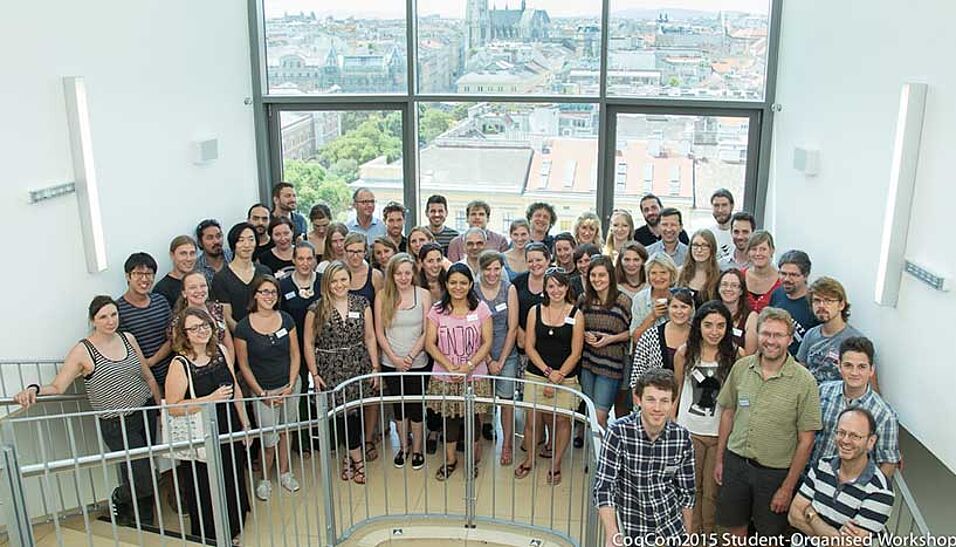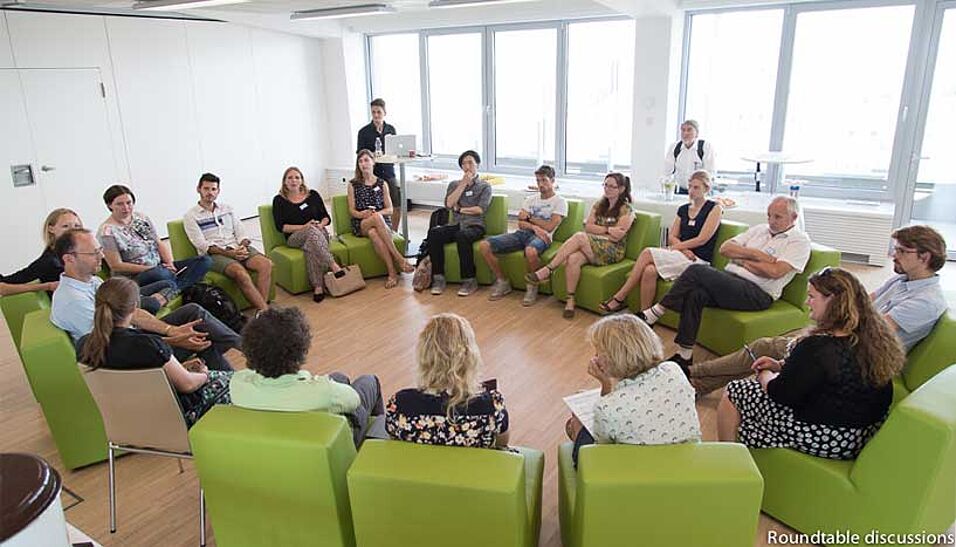The workshop was funded by the Austrian Science Fund through the PhD Programme in Cognition and Communication and by the "conference support" of the DLE Research Services and Career Development, Center for Doctoral Studies, University of Vienna. Alexandru Munteanu, Vedrana Šlipogor and Iris Starnberger tell us about their experience.
- Why did you organize the workshop CogCom 2015?
Iris and Vedrana: The goal of the workshop was to bring together scientists from different research areas that are internationally renowned experts in their respective field (social behaviour, communication, individual differences and endocrinology), and their students/collaborators for insightful discussions and potential future collaborations. Another reason was to gain experience in organizing a meeting with international participation.
Alex: My personal reason for participating in the organization of this workshop was to get more experience with workshop planning and executing. I also felt that my organizational and technical skills could both benefit the core team and me, by polishing them and learning something new.
- What were the main challenges when organizing the workshop?
Iris and Vedrana: Along the way we encountered coordination and communication barriers due to our wide array of scientific activities that often demanded our full involvement. Working with animals is time demanding, and requires us to adapt our schedule to that of the animal. Moreover, we foresaw that keeping track of others’ tasks and having a sense of progress for the entire project could also become problematic. This is why we established regular meetings and an online collaboration platform early on. Both helped us to better plan and coordinate tasks, and gave us the flexibility to get them done in our own pace while keeping an overview of the progress state.
Alex: Coordination and communication were the main challenges. For a while we managed to get things done using an online coordination platform (Trello) but this works as long as you check it, or as long as it reminds you. As soon as people started sending spam-like messages, the others gradually began to ignore Trello, as it represented an additional task on top of the daily workload. Live/skype meetings were still the best for reestablishing communication.
- What will you especially remember of this workshop?
Iris and Vedrana: We will especially remember our cooperative efforts of putting this workshop together. Although keeping track with progress and each persons’ duties was challenging at times, looking back to it we are very pleased with how our joint forces brought this workshop to life. We are very pleased to confirm that this combination of talks, discussions and social events in a small, targeted workshop provided an ideal scientific working environment for both students and professors: ideas were shared in the modern Skylounge seminar room, problems and current topics were discussed during the coffee and lunch breaks. The Skylounge terrace, that overlooks the Danube channel and the Votivkirche, and three social events provided an ideal setting for a more relaxed brainstorming with colleagues in between and after the sessions. In general, plenty opportunities arose for general networking and for establishing future collaborations. Thus, we are more than grateful for this empowering experience, and would like to thank the Austrian Science Fund and DLE Research Services and Career Development of the University of Vienna for their generous financial and other support on all stages of this project.
Alex: Cooperation! I will remember our combined effort to put this workshop together, and while the result was brilliant, the process was even more fun! 4.
- Do you have tips for other PhD candidates who plan to organize a conference/ workshop?
Iris and Vedrana: From the very beginning it is important to set up your own communication and coordination platform (e.g. Trello, Google Group) to define individual responsibilities, and to make sure each one is committed to respecting his/her duties. Additionally, we would like to suggest starting with organization at least six months in advance, and reserving lecture/seminar rooms as soon as the dates of the meeting are known.
Alex: From the very beginning set a communication-coordination platform, set individual responsibilities and make sure each one is committed to respecting his/her duties.


